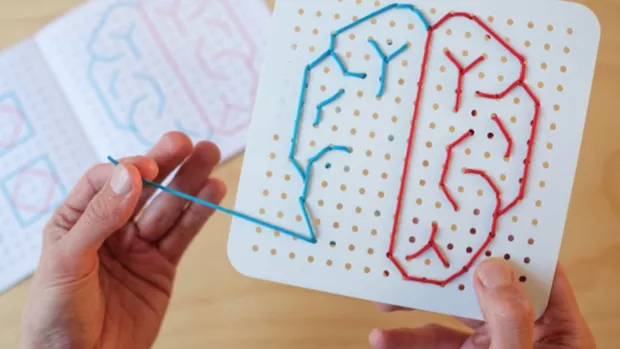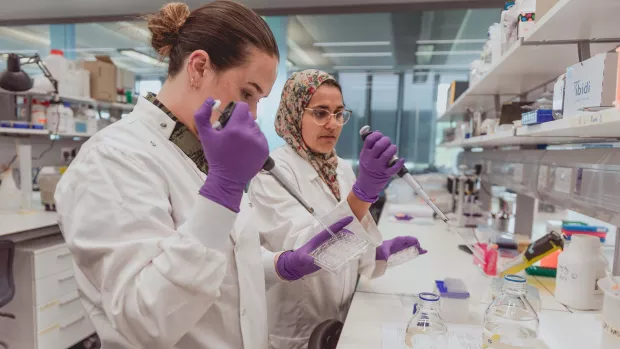
Who is MS research missing?
Dr Andrea Stennett is a neuro-physiotherapist and researcher. Research Network member Richard Eke spoke to Andrea about the importance of including everyone with MS in research.
MS can affect people of any age or background. But Andrea explained to me that not everyone has been included in research. She’s dedicated much of her career to helping people with MS. And she’s determined to make research represent the people affected by the condition better.
Andrea said: “You might read a study. You’re thinking, great, this is exciting. But you look at who’s taken part and you think, this doesn’t match the population of people affected by MS in the real world. We can’t confidently know it applies to groups of people that weren’t included.”
So Andrea wants us all to ask: “Who is missing from MS research, why are we missing them, and what can we do about it?”
Who are we missing?
Andrea gave some examples. “Some people might not be able to take the time off work to participate – it can cost time and money.” She is equally thoughtful about ethnicity, saying: “We’re not reaching some communities. What if patients don’t speak English? Or what if they don’t have anybody at home to translate all the information we’re sending out to them?”
She also thinks researchers are missing older people with MS. Andrea reminds me that traditionally, a lot of research stopped at 65 years old. Why, when we know that people with MS are living much longer now? That also led to Andrea discussing the fewer opportunities for people with higher disability levels. A lot of the studies involving people with MS have focused on walking.
Andrea wanted to throw some light on the upper body. So she’s been working on the ChariotMS trial, which is testing whether a drug can preserve arm and hand function in people with advanced MS. And the Under & Over study, which is testing a rehab tool for hand and arm function. Neither study has an upper age limit.
“The heart of the issue is that we all have a responsibility to make research more inclusive. And that involves widening what we do to reach people of all ethnicities, ages, and socioeconomic groups.”
Learning from the pandemic
Andrea thinks about who’s missing from a clinician’s perspective too. During the pandemic she was concerned about the patients she wasn’t hearing from. She said: “We work in East London. It’s an economically deprived area. And we have lots of different ethnic minority groups. I was concerned we weren’t reaching everyone.”
She added: “Some older people might not have the technical skills to do a video consultation, so as a backup we had the good old telephone.” These are the kind of barriers that exist in research too.
Andrea is confident we can reduce them, or make adjustments for people who need it, just like in the pandemic.
Trust and communication
Andrea saw trust as one of the major barriers to participating in research, especially for people from ethnic minorities. “We have to acknowledge that unethical research has been done in the past. It’s understandable people may not trust the process.”
This led Andrea to question how we heal from that and move on. Andrea thinks all research needs to be open and transparent. And helping people understand what research involves, and what opportunities there are could help too.
Responsibility
Andrea finished by saying: “The heart of the issue is that we all have a responsibility to make research more inclusive. And that involves widening what we do to reach people of all ethnicities, ages, and socioeconomic groups.”
As an organisation we’ve launched a new strategy to become more diverse and inclusive. But we know research has some unique challenges. So we’ve developed a plan to tackle them.
This blog first appeared in MS Matters magazine in Spring 2022.



